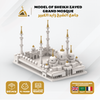The concept of Riba, often translated as "usury," holds significant weight in Islamic finance. It goes beyond the simple notion of interest and delves into the realm of unfair and exploitative gains.
Introduction
This article unpacks the meaning of Riba, its various forms, the Islamic perspective on its prohibition, and the ethical and social reasoning behind it. We'll also explore alternative financial instruments offered by Islamic finance.
Types of Riba
There are two main categories of Riba:
Interest-Based Riba: This occurs when fixed interest is charged or received on loans. The borrower is obligated to repay the principal amount plus an additional sum, regardless of their financial success or failure. This fixed interest is seen as exploitative because it guarantees the lender a profit without sharing any risk associated with the loan. Imagine borrowing money to start a business. With interest-based Riba, you'd be obligated to pay back a set amount of interest on the loan regardless of whether your business succeeds or fails. This can be a significant burden and discourage entrepreneurship.
Commodity-Based Riba: This involves the unfair exchange of commodities, where one good is valued higher than another solely due to delayed payment. Imagine selling someone a loaf of bread for $1 today but agreeing to sell it for $1.50 if they pay next week. This type of Riba exploits the borrower's immediate need for the good. It essentially charges them a premium for needing the item now, rather than waiting.
The Islamic Perspective on Riba
Several Quranic verses explicitly forbid usury. These verses differentiate Riba from legitimate trade, emphasizing the unjust nature of charging fixed interest. They warn against the consequences of dealing in Riba and highlight that wealth gained through such means doesn't increase with God.
The teachings of Prophet Muhammad (PBUH) further solidify the prohibition. He equated the severity of Riba to grave sins like adultery, underlining its seriousness within Islamic tradition.
Reasons for Prohibition: Beyond the Financial
The prohibition of Riba extends beyond mere financial considerations. Here are some key reasons:
Exploiting Vulnerability: Riba can be incredibly exploitative, particularly for those in desperate financial straits. The fixed interest payments become a burden, trapping borrowers in a cycle of debt. Imagine someone needing a loan to cover unexpected medical bills. With Riba, they might end up paying much more than the original loan amount due to the fixed interest, causing immense financial strain.
Wealth Inequality: Riba allows lenders to profit disproportionately from the borrower's financial struggles, widening the gap between rich and poor. This fosters social unrest and hinders economic development. In a system where interest is the norm, the wealthy can easily leverage their money to make more money, while those struggling financially have difficulty climbing out of debt. This creates an uneven playing field and hinders overall economic growth.
Discouraging Productive Activity: The focus on fixed interest discourages investment in productive ventures and entrepreneurial activities. This stifles economic growth as a whole. With Riba, lenders are guaranteed a return regardless of the success of the project they're financing. This discourages investment in new businesses or ventures that might carry some risk but have the potential for greater economic benefit.
Ethical Concerns: Islam promotes fairness, justice, and compassion in financial dealings. Riba, with its emphasis on guaranteed returns regardless of risk, is seen as greedy and unethical. A core principle of Islamic finance is shared risk and reward. Riba prioritizes guaranteed profit for the lender, even if the borrower experiences a loss. This is seen as unjust and lacking in compassion.
Islamic Alternatives to Riba
Islamic finance offers a variety of Sharia-compliant financial instruments that promote fair and ethical practices. Here are some prominent examples:
Musharaka: This is a partnership-based financing arrangement where two or more parties come together to invest in a project. Profits and losses are shared according to a predetermined agreement. Musharaka encourages collaboration and shared risk, fostering a more equitable financial environment.
Mudaraba: In this partnership, one party (the Rabb al-Mal) provides the capital, while the other (the Mudarib) provides expertise and manages the business venture. Profits are shared according to a pre-agreed ratio, while losses are borne by the capital provider. Mudaraba allows those with capital to invest in ventures they might not have the expertise to manage themselves, while also rewarding skilled individuals for their entrepreneurial efforts.
Ijara: This is a leasing agreement, where one party (the lessor) owns an asset and leases it to another party (the lessee) for a fixed period in exchange for rental payments. Ownership of the asset can eventually be transferred to the lessee upon fulfilling the lease agreement.
Sukuk: These are Islamic bonds that represent ownership in an underlying asset, project, or venture. Sukuk holders receive a share of the profits generated by the underlying asset, but not a fixed interest rate. This promotes shared risk and reward between the issuer and the investor.
These are just a few examples of the many Islamic financial instruments available. They offer Muslims a way to participate in the financial system while adhering to their religious principles.
Understanding Riba goes beyond simply avoiding interest. It's about fostering a financial system built on fairness, shared risk, and ethical principles. Islamic finance, with its emphasis on alternative financial tools, provides Muslims with a framework for managing their finances in accordance with their faith. Whether you're a Muslim seeking Sharia-compliant financial solutions or simply interested in exploring alternative economic models, understanding Riba is a valuable step towards a more equitable and ethical financial landscape.









